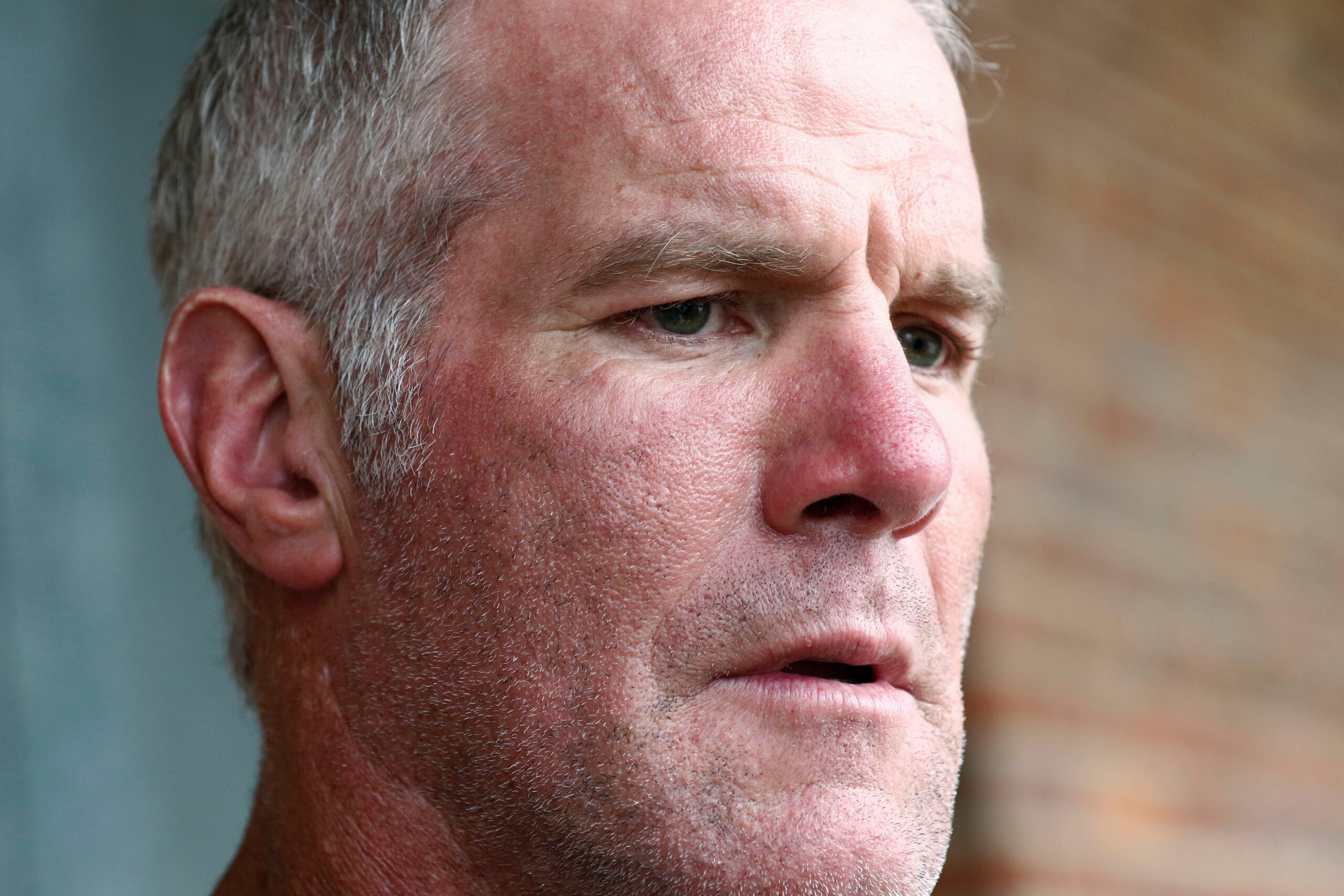Is Mississippi’s favorite welfare beneficiary, Brett Favre, getting enough scrutiny from the media? The Hall of Fame QB was roasted on social media Thursday after his state’s former welfare chief pleaded guilty to state and federal charges in the scandal. John Davis, the former director of Mississippi’s welfare agency, copped to 18 counts of fraud and conspiracy in a state’s case and two other federal counts. But possibly more worrisome to Favre is the fact that Davis, who has potentially dozens of years of prison time hanging over his head, agreed to flip, committing to cooperate with prosecutors who are still investigating the scandal.
Favre wasn’t named in the charges that Davis pleaded guilty to, but his name is closely associated with the broad scandal surrounding wealthy individuals receiving millions of dollars in funds that were meant to help poor people in the poorest state in the country, at the direction or with the help of Mississippi officials. That scandal also includes retired WWE star Ted DiBiase (nicknamed the “Million Dollar Man” because the universe knew this was coming) and his sons. Last week, Mississippi Today reported on text messages that show former Mississippi Gov. Phil Bryant trying to figure out how to move $5 million in welfare funds to help Favre build a new volleyball center at the University of Southern Mississippi, where his daughter played on the team.
Suggested Reading
With the controversy surrounding Favre taking on new life, journalists, fans and former players hit Twitter to ask why Favre’s name isn’t making screaming headlines like Black sports figures who have faced scandal. Some conflated Favre’s treatment in the media with that of Ime Udoka, the Boston Celtics head coach who faces a possible yearlong suspension over a personal relationship with a team staffer.
The sentiment is understandable, given the decades of evidence we have that Black players are raked over the coals in media. But in this case, it’s possible that the reaction to coverage of Favre is as much about that history as it is about coverage of Favre himself. Favre’s ties to the Mississippi welfare scandal have been written about hundreds of times in multiple outlets since the nonprofit Mississippi Today first broke the story on September 13. As I write, a Google search for news articles connected to Favre’s name returned 237,000 results in less than half a second, including stories by the New York Times, SB Nation, the Daily Beast and Sports Illustrated all published Thursday afternoon. ESPN, which has taken the brunt of criticism of a double standard between its coverage of Favre and of Black players, has a story on its web site, dedicated an episode of its ESPN Daily podcast and had aired several segments on the scandal on SportsCenter and other shows on Thursday. (Note: I was a senior editor at ESPN from 2011-2013).Both the Root and our sister site Deadspin devoted space to Favre this week. A former colleague of mine at Bloomberg ran a quick search on their famous terminal and turned up 610,000 stories about Favre indexed this week alone. Point being, the question about whether Favre was getting enough coverage wouldn’t be a thing if people didn’t know from media reporting what he’s allegedly involved in, and there’s a lot of evidence that the reporting is all over the place. But that doesn’t mean the issue of media coverage of Favre is a non-issue.Last week, Fox Sports 1's Undisputed co-host, Hall of Fame tight end Shannon Sharpe, tore Favre a new one on-air, and pointed out the hypocrisy in how Favre, a white man, is treated compared with Black players.
“The federal government gave him that money but they’re quick to point out Black and brown people. ‘Oh they stealin!...The biggest criminals, the ones who steal the most, look like that,” he said, pointing to Favre’s image.Since Favre is, in fact, being covered all over the place, the reaction to the coverage—and the perception that he isn’t—is largely a response to a problem that existed before Favre was in the news for his alleged misdeeds. Media has an undeniable historic bias toward overplaying stories about Black players (or people in general) for negativity and underplaying stories about white players/people for the same. People recognize that and are sensitive to it because broadly it is real, even if a lack of coverage specific to one particular story or person is imagined.
It’s made worse by the fact that most people’s social media feeds work to confirm what they already suspect about the coverage. For the most part we’re follow people whose experiences mirror our own. So if you believe that media overdoes it covering Black players’ bad behavior—and they do—when a post crosses your timeline and says, “Why are they paying more attention to Brett Favre than Michael Vick?” you’ll amplify that.Make no mistake, Favre deserves every bit as much scrutiny as Deshaun Watson, who’s currently suspended over allegations of sexual misconduct, Ray Lewis, who during his career was tried and acquitted of murder or Ray Rice, whose career, rightfully, ended after a horrible video of him punching his then-fiancée surfaced. He deserves much more scrutiny than Michael Vick, who served his time and paid his debts over dogfighting, Colin Kaepernick, who was never guilty of anything besides pissing off people who are OK with police violence against Black people, or Udoka, whose offenses we don’t yet know all the details of but at present boil down to a consensual relationship with a married co-worker (a thing that’s probably happening in your own workplace right now).
Favre is a HOF player and one of the most famous of his generation and what he’s accused of is, in a phrase, fucked up. Siphoning cash from poor people to help the rich should land you in the Hall of Fame for terrible people. It warrants every word that gets written or said about it from here on out.
Straight From 
Sign up for our free daily newsletter.


